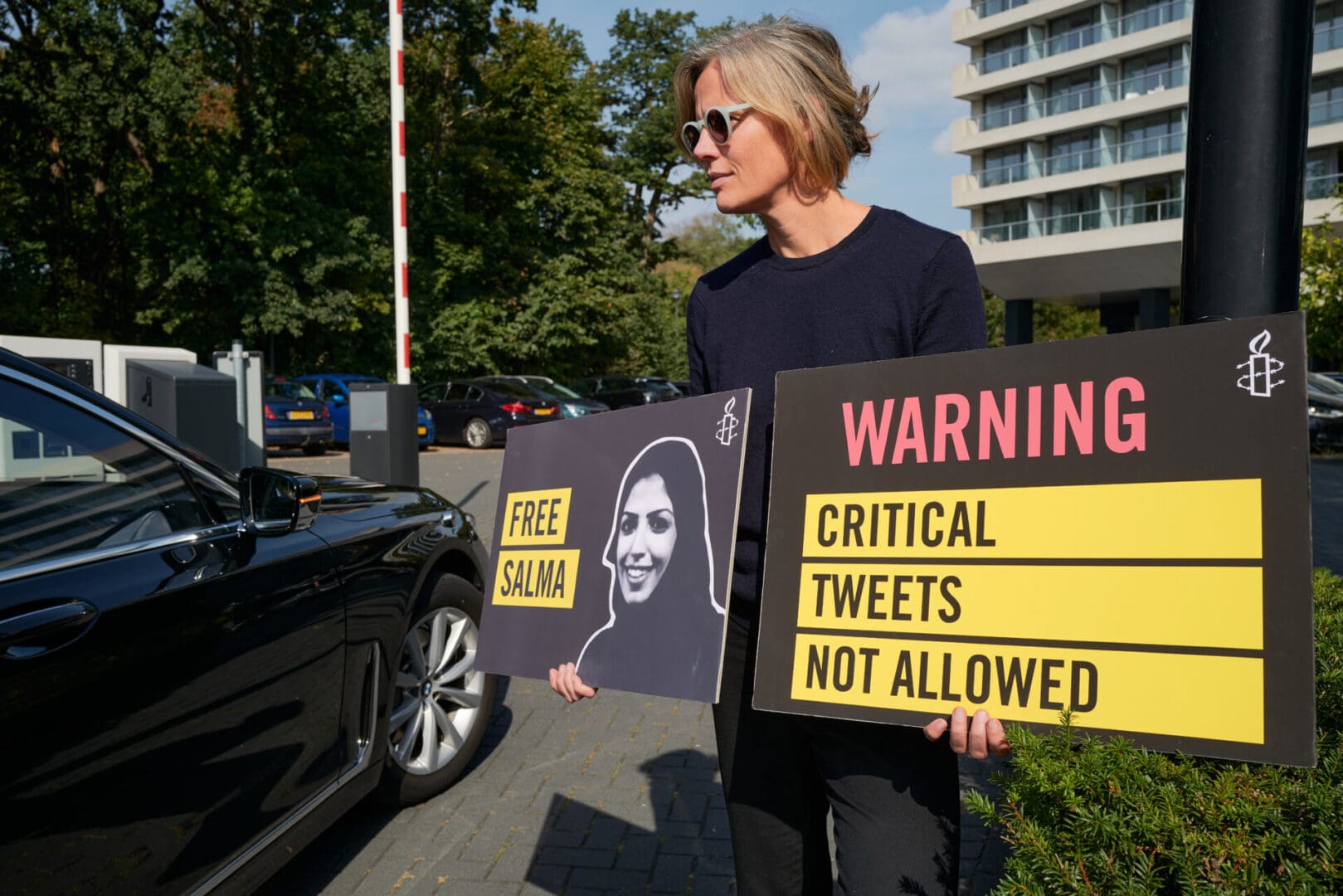Saudi Arabia’ s authorities must immediately release all those arbitrarily detained solely for expressing their views online ahead of the upcoming Internet Governance Forum (IGF) in Riyadh, said 40 NGOs and human rights organizations, including Amnesty International, in a joint statement published today.
One of the key themes of the annual forum on digital public policy, which is due to take place from December 15 to 19, 2024, is advancing human rights in the digital age. The organizations highlighted the hypocrisy in Saudi Arabia playing host to the event while continuing to lock up, forcibly disappear and intimidate people into silence.
“Saudi Arabia’s authorities have 100 days before the IGF begins to demonstrate that they will ease their draconian crackdown on freedom of expression, and to show that they will use this event as an opportunity to carry out genuine reforms rather than as part of an image washing campaign,” said Agnès Callamard, Amnesty International’s Secretary General. “In order to prove that their hosting of the conference about the Internet’s future is more than just a cynical PR exercise, the Saudi authorities must release all those arbitrarily detained solely for exercising their right to freedom of expression online before the IGF begins.”
Many civil society activists and human rights defenders who usually attend the annual conference have expressed serious concerns about traveling to Saudi Arabia to participate, fearing arrest, harassment or surveillance given Saudi Arabia’s track record of silencing and imprisoning critics.
Amnesty International is calling on the IGF organising committee to seek public assurances from the Saudi authorities that no one will be denied entry into the country to participate in the conference, that none of the IGF participants will face any harassment, including detention and surveillance, and that all participants will be able to speak freely.
In recent years Amnesty International has documented how the Saudi authorities have waged a chilling crackdown against people who demonstrate even the slightest sign of dissenting or critical views online.
Among those who have been convicted for their online expression is Salma al-Shehab. She was arrested in January 2021 and, after a grossly unfair trial, sentenced in January 2023 to a shocking 27-year prison term followed by a 27-year travel ban on trumped up terrorism charges, simply because she tweeted in support of women’s rights.
In another deeply disturbing case, in January 2024, Saudi Arabia’s terrorism court sentenced Manahel al-Otaibi to 11 years in prison in connection with social media posts promoting women’s rights and sharing images of herself online at a mall without wearing an abaya (a traditional loose-fitting long-sleeved robe).
Those targeted also include Abdulrahman al-Sadhan, a Red Crescent worker, who in April 2020, after a grossly unfair trial, was sentenced to 20 years, to be followed by a 20-year travel ban, for his satirical tweets, and Mohammad bin Nasser al-Ghamdi, a retired schoolteacher, who was sentenced to death in July 2023 for criticizing authorities on X (formerly Twitter) and his online activity on YouTube.
“These cases illustrate the dark truth about the Saudi authorities’ repression of freedom of expression online. If the Saudi authorities are serious about taking on a global leadership role in digital public policy, they must demonstrate their commitment to respecting the right to freedom of expression for all by reforming vague laws that criminalize expression, such as the Anti-Cyber Crime Law, and putting a decisive end to their repressive crackdown on critics online and offline,” said Agnès Callamard.
CONTACT: [email protected]

